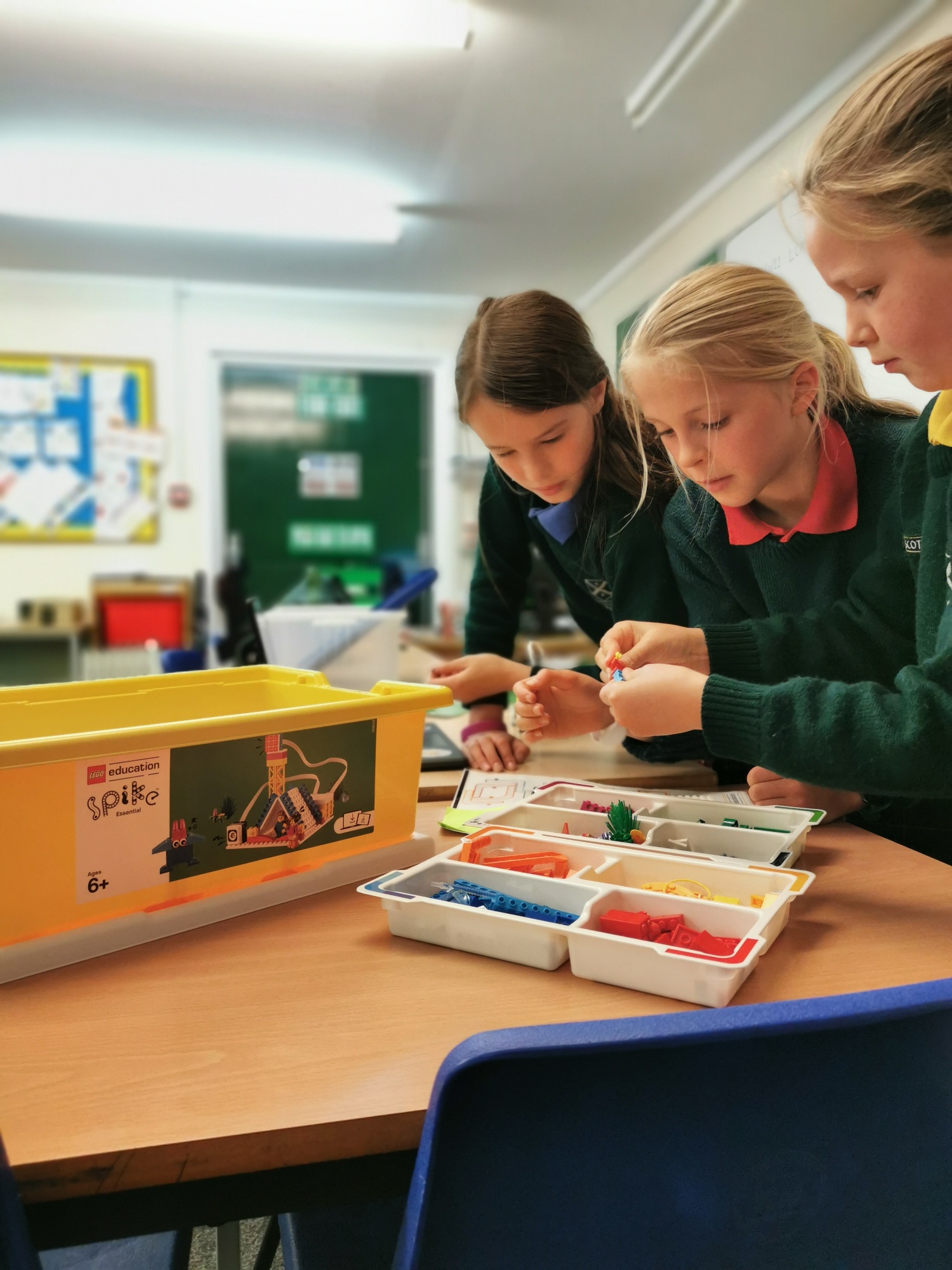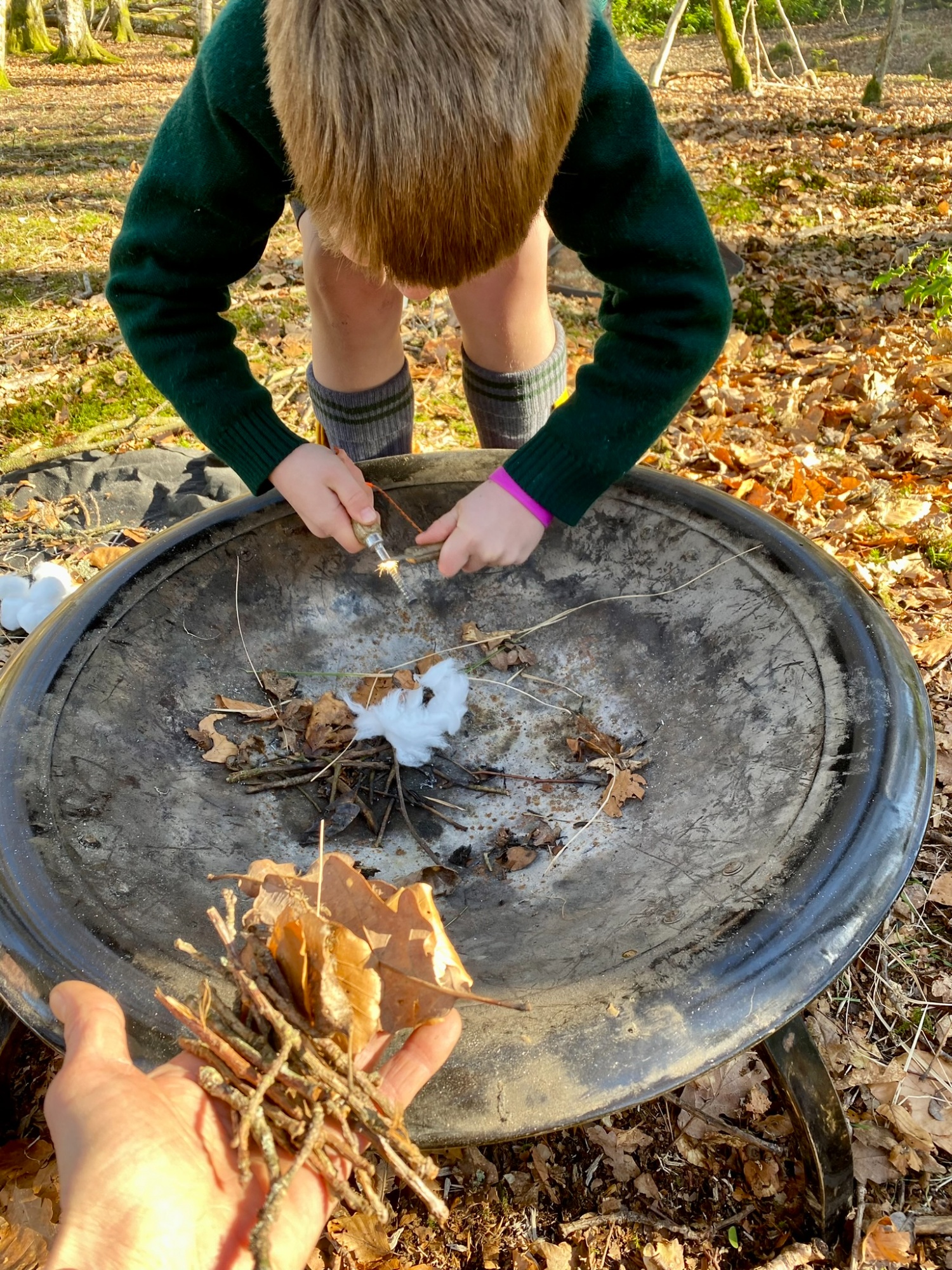Ardvreck’s Adaptable Approach to Neurodiversity

By Sarah Mannion
Ardvreck has always had an ethos of educating the whole child in an inclusive and individualistic way, whilst providing the broadest range of experiences possible.
 Your child might not like absolutely everything that is on offer, but participation in such a wonderful array of events, activities, lessons and team building is certainly going to build their strength of character! It encourages a ‘have a go’ attitude. Determination and resilience is developed from the earliest age and there is no ‘mollycoddling’ going on here! Even the youngest children climb mountains and walk miles, play sports on a daily basis and learn musical instruments, sing and perform in choirs and orchestras, string groups, pipe band, and perform on stage in our fabulous productions and assemblies. Ardvreck could be perceived as a ‘non stop’ school where children could end up doing too much - but providing acres of outdoor green space in which to play, feeding healthy and nutritional meals (freshly cooked on site, using as much locally sourced produce as possible), incorporating outdoor learning into the school curriculum, and having small class sizes contributes to the ‘family feel’ and nurturing nature of the school. So what makes Ardvreck special? It’s the combination of everything together that makes the perfectly baked cake - along with the best ingredients - lovely families, pupils, and a dedicated, experienced and extremely hardworking staff team - perched on a hill in the Perthshire Highlands of Scotland!
Your child might not like absolutely everything that is on offer, but participation in such a wonderful array of events, activities, lessons and team building is certainly going to build their strength of character! It encourages a ‘have a go’ attitude. Determination and resilience is developed from the earliest age and there is no ‘mollycoddling’ going on here! Even the youngest children climb mountains and walk miles, play sports on a daily basis and learn musical instruments, sing and perform in choirs and orchestras, string groups, pipe band, and perform on stage in our fabulous productions and assemblies. Ardvreck could be perceived as a ‘non stop’ school where children could end up doing too much - but providing acres of outdoor green space in which to play, feeding healthy and nutritional meals (freshly cooked on site, using as much locally sourced produce as possible), incorporating outdoor learning into the school curriculum, and having small class sizes contributes to the ‘family feel’ and nurturing nature of the school. So what makes Ardvreck special? It’s the combination of everything together that makes the perfectly baked cake - along with the best ingredients - lovely families, pupils, and a dedicated, experienced and extremely hardworking staff team - perched on a hill in the Perthshire Highlands of Scotland!
Neurodiversity is a word which is increasing in popularity and one that no school in the land can ignore. It relates to the way in which the brain functions compared to a ‘typical’ person. It affects how someone behaves, responds and communicates with the world around them. It is estimated that around 15-20% of children today (in the UK) are neurodiverse - and this number is rising quickly and some estimations suggest numbers are actually in the region of 60-70%. Neurodiversity is an umbrella term that includes Autism, ADHD, Tourettes, Dyslexia and Dyscalculia, OCD amongst other terms. You cannot be ‘a bit dyslexic’ or a ‘bit autistic’ - you either are, or you aren’t. Simple. And yet it’s not that simple is it? Everyone experiences life, the world and themselves differently anyway - through their own eyes/experiences - so why are neurodivergents really so different?
Some neurodivergent children struggle to cope in a world that expects and often demands more ‘typical’ behaviours, actions, responses and communications. (That said, it must be acknowledged that all children will probably encounter struggles and difficult periods in life too). A diagnosis can help the child and their families to understand there is nothing ‘wrong’ with them, but that they operate a little differently to neurotypical children. A diagnosis can also highlight different ways in which they can work, learn, and manage the rigours of life. Neurodiversity is not an illness, a disease or a deficit and does not make you any ‘less’ in value. Neurodivergents will have their own unique set of strengths and ‘superpowers’ - just like anyone else. However, some children find school life particularly difficult - this may be due to unrealistic cognitive expectations; parental, pupil, or teacher misunderstandings, requests or demands; becoming socially and emotionally overwhelmed. It can lead to poor mental health, although it is not usually regarded as a mental health condition.
 Masking is something everyone does - we present ourselves in the way in which we feel will help us to fit in; the way in which we think we ought to behave in a situation. For a neurodivergent person, such ‘masking’ (and overthinking) is exhausting. Keeping a lid on everything in order to exhibit ‘normal’ behaviours may cause extreme tiredness and anxiety.
Masking is something everyone does - we present ourselves in the way in which we feel will help us to fit in; the way in which we think we ought to behave in a situation. For a neurodivergent person, such ‘masking’ (and overthinking) is exhausting. Keeping a lid on everything in order to exhibit ‘normal’ behaviours may cause extreme tiredness and anxiety.
To test or not to test?
If someone cares enough to raise a conversation with you about the possibility of your child being neurodivergent, the chances are that there are sufficiently clear indicators. Teachers become adept at noticing them and if they perceive a child is starting to struggle with managing it, they might choose to open up a potentially tricky conversation. Try not to get cross with them - they are trying to help. Thank them. Keep an open mind. It may not be what you wanted to hear - we all want to have a genius child or a gifted child! There are things you can do: keep a diary. Think back about your child’s early development. Talk openly to your child - it is their life (and they aren’t going to be children forever) They will have a view about themselves and their own lives and this should be respected; they will be able to share their experiences and struggles with you. No one is going to suggest your child is neurodivergent just for fun - it will be with the best and the kindest of intentions and so that support can be arranged - but what you do about finding out for certain is entirely up to you. Look to the future - to the teenage years and beyond and consider what may lie ahead. You may choose to wait until they are older - the choice is yours.
If you do choose to test - to find out for certain - you cannot ‘undo’ the results but you also do not have to share the results unless you choose to. First, find a specialist and book an initial conversation. Most neurodivergent ‘types’ can only be diagnosed by a clinical psychiatrist. They may ask lots of questions and ask you to complete forms. They may want to talk with your child. They may ask for input from school and other adults who know your child well. The process can be quite long and time is taken (up to a year) to ensure any diagnosis is the correct one. The best bit is that you will be provided with lots of strategies and suggestions for the future. These will be incredibly helpful for the whole family, for the school and for the young person themselves. A diagnosis can bring huge relief, knowing that there is a reason why you operate a certain way and knowing that you are not alone - it can bring such joy! But it takes time to get used to and is just the start of the new lifelong learning and adjustment process that lies ahead.

If you like this blog, read more about Ardvreck’s Let Them Play approach to education and creating a charming childhood for children here.
